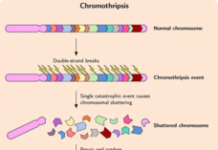On the 9th of November 2023 issue of The New England Journal of Medicine, Dr. Frederic Amant of the Division of Gynecologic Oncology, UZL in Leuven, Belgium and colleagues presented a case of an infant with severe immune-related gastroenterocolitis after in utero exposure to pembrolizumab. The histopathological and immunophenotypic findings, together with the timing and duration of pembrolizumab exposure in utero, the high blood level of pembrolizumab after birth, and the positive response to prednisolone and infliximab strongly point toward an immune-related gastroenteritis.
This case of pregnant young woman with melanoma who received pembrolizumab illustrates the potential of immune checkpoint inhibitors (ICIs) to induce immune-related adverse events in offspring, even several months after birth, and underscores the recommendation that these drugs should be used with caution during pregnancy. A need for initiating treatment during pregnancy, the expected maternal benefit, and gestational age of exposure are variables that need to be considered.
A 26-year-old woman was diagnosed for superficial spreading melanoma on her right thigh that was classified as stage IIIB according to the AJCC version 8 criteria. After excision and sentinel-node removal which revealed two positive lymph nodes, adjuvant treatment was discussed. At that time, ultrasonography showed a viable, intrauterine pregnancy at 9 weeks’ gestation. After extensive, multidisciplinary discussion about the risks and benefits of adjuvant treatment with ICIs during pregnancy and considering the patient’s strong desire for treatment, clinicians decided to start treatment while maintaining the pregnancy.
The first pembrolizumab dose at 400 mg every 6 weeks was administered at 16 weeks’ gestation. An immune mediated hypophysitis or adrenalitis was suspected, and hydrocortisone was started at 35 weeks’ gestation. At 37 weeks’ gestation, which was 3 weeks after the last pembrolizumab administration, labour was induced because of maternal cholestasis. A healthy boy was born by uncomplicated vaginal birth. However, at the age of 4 months, the child was referred to a local hospital with a history of watery diarrhoea for 3 weeks, weight loss of 6%, decreased oral intake, and vomiting.
A broad differential diagnosis of intractable diarrhoea of infancy was investigated. Two weeks later, severe hypoalbuminemia was detected, with concomitant hypogammaglobulinemia, which suggested protein-losing enteropathy that was possibly caused by inflammation. This hypothesis was supported by the results of gastroduodenal and subtotal colonoscopy. Histologic changes in the duodenum were not entirely specific but strongly resembled anti-PD-1 associated immune-related gastrointestinal toxicity and colitis in adult patients.
The results of whole-exome sequencing were negative for a panel of known genetic variants associated with primary immunodeficiency and very-early-onset inflammatory bowel disease, including autoimmune enteropathies. Immunologic analysis of blood samples revealed that the majority of peripheral CD4+ and CD8+ T-cells had a hyperactivated phenotype. As presumed cause of the symptoms was immune mediated, the infant was treated with prednisolone and infliximab.
Ten weeks after admission, the patient was discharged with complete enteral feeding and normal weight gain. After 3 doses of infliximab, peripheral T-cell activation normalised and the mucosa appeared to be normal on gastroduodenoscopy. Gastroduodenoscopy at 2 years showed normal enteral mucosa, and biopsy revealed normal villous architecture without signs of inflammation. According to other treatment regimens for paediatric autoimmune enteropathies, infliximab will be continued until the patient is at least 3 years of age, after which repeated gastroduodenoscopy will be performed.
To further support hypothesis that the in utero exposure to pembrolizumab caused the observed gastroenterocolitis, the clinicians developed a new method for determining anti-PD-1 levels on heel-prick cards.
The authors underlined when ICIs are administered during pregnancy, close monitoring for symptoms in the newborn should be encouraged in order of early detection and adequate treatment of possible immune-related adverse events, which may develop weeks to months after exposure.
Reference
Baarslag MA, Heimovaara JH, Borgers JSW, et al. Severe Immune-Related Enteritis after In Utero Exposure to Pembrolizumab. N Engl J Med 2023;389:1790-1796.







